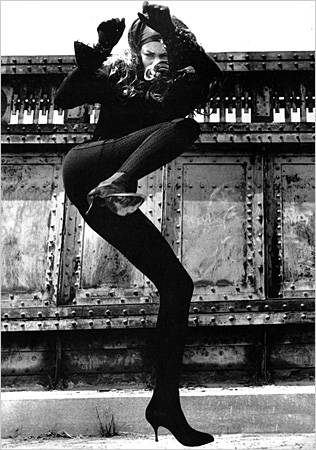This is so commonplace now that I hesitate to bring attention to it but earlier this month as I was paging through the New York Times I came across a story, rather small, on an inside page, about an Army private sentenced to 110 years for the rape of the Iraqi girl and the killing of her and her family.
Perhaps this story didn't need to played any larger -- after all, this is not the first soldier involved in the incident to be sentenced. It's not the first time that the story has been reported. Still, it is an unusually high sentence for such a crime, a remarkable sentence really. And for whatever reason, while this story is well known it has never, to me, grabbed the attention it deserves. That the soldiers involved are facing such penalties has not received the attention this deserves -- usually there is something of a pass given to soldiers who lose it, their penalties have never, to me anyway, seemed large enough.
As it happens I was at dinner with an old friend, a sound engineer (is this what they are called??) who had that very day finished the last touches on a new Brian de Palma film -- a remarkable feat, shot and completed within four months. The subject? The rape and murder of the Iraqi girl and the murder of her family. The movie, she says, is harrowing and a return for de Palma to his days as a maverick. It is shot as though by news cameras, security, rogue grabs on videocam -- raw, real, unrepentent.
The movie is receiving positive buzz so far but is deeply disturbing and I cannot imagine what it was like for her to lay down the sound. I remember well the trial of serial rapist and serial killer Paul Bernardo -- no one but the jury was allowed to see the actual video he and his wife took of their rape and torture of two young girls but the sound of the thrill, the barely contained joy, in his voice and the keening of the girls torments me still.
My friend said she feels the movie makes us complicit in the crime but I disagree. It forces us to look at it, to understand who to hate and how much. This is the important new role of communicators other than media. This child was raped while her family was trapped in another room, unable to help her but able to hear what was happening as soldiers one by one attacked her, as other soldiers held her down. Her family was killed before she was, and then she was shot in the head. In my experience in covering crime I would say this was the soldier's only mercy -- one of the cop reporters I knew used to say rape victims are the same as murder victims, they're just not dead yet. Afterward, her small body was set on fire. It is terrible to read these words, worse yet to witness the acts even as a fictionalized account and yet all this happened. It happened on our account, as an outcome of the "war on terror". I don't feel I've been able to read nearly enough about these events despite what some might call a "media saturation"; that the longest sentence in memory was doled out a few weeks ago and that the story didn't warrant better play is a shame. Therefore I think it is honorable that de Palma saw fit to document this atrocity, and it is probably a duty of ours to witness it. It's a shame we will need to go to a cinema and pay for the privilege when it all should have been on the news, but that's the way it is. The Canadian Broadcasting Company once saw fit to call television "the fifth estate" and I would suggest that the fourth, media, typically newspapers, are no longer any estate at all. We are lucky there are always storytellers, though, ready to take up the cause.
Subscribe to:
Post Comments (Atom)












No comments:
Post a Comment